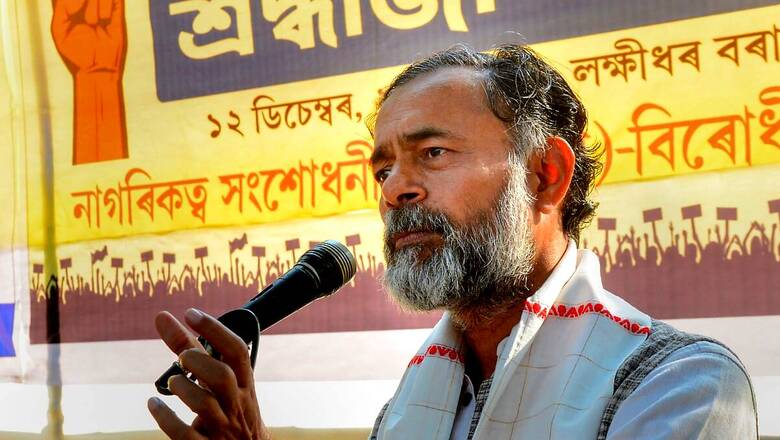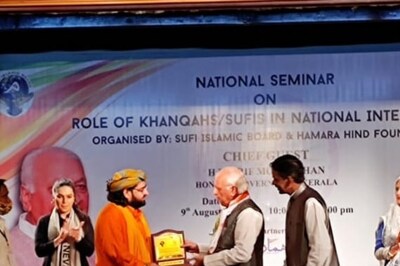
views
The National Council for Educational Research and Training (NCERT) on Saturday said the committees constituted by it from 2005 to 2008 for development of textbooks were “purely academic in nature” and that it publishes the name of all those who participated in developing these only for “acknowledging their contribution” and hence the “question of not associating” with it “doesn’t arise”.
The response comes a day after Yogendra Yadav and Suhas Palshikar, who were chief advisors for the Political Science books for classes IX to XII, originally published in 2006-07, wrote a letter to the council disassociating themselves from the textbooks in their current form and requested that their names be dropped from them.
Yadav and Palshikar, while objecting to the rationalisation process of the textbooks by the NCERT, said in their letter to director DP Saklani on Friday that the rationalisation had “mutilated” the textbooks and that they were “embarrassed” to be associated with these.
Saklani said they have issued an official statement in response to the letter. “During the year 2005-2008, Textbook Development Committees (TDCs) were constituted by the NCERT for development of textbooks in various subjects for all classes. These committees were purely academic in nature and existed until the textbooks were developed. After the textbooks were published by the NCERT, their copyright remained vested with the NCERT independent of the TDC,” the statement said.
It further stated that all members of the Textbook Development Committees (TDCs) had given their concurrence on this through written undertakings. Therefore, the roles of the members of the TDC in various capacities such as –chief advisor, advisor, member and member-coordinator — was limited to advising how to design and develop the textbooks or contributing to the development of their contents and not beyond this.
The rationalisation exercise, leading to textbooks being reprinted in 2022-23 ostensibly to cut down burden on students owing to the Covid-19 pandemic, drew massive criticism from academicians and leaders of opposition parties over crucial chapters being deleted from the syllabus.
These changes included passages on the theory of evolution, references to the Cold War, the Mughal courts, industrial revolution, references to the 2002 Gujarat riots, various political and social movements of significance to the Indian democracy, among others.
Reacting to the letter, the NCERT statement further read: “Textbooks at the school level are ‘developed’ based on the state of our knowledge and understanding on a given subject. Therefore, at no stage individual authorship is claimed, hence the withdrawal of association by any one is out of question.”
It also stated that the terms of these Textbook Development Committees (TDCs) have ended since the date of their first publication. “However, NCERT acknowledges their academic contribution and only because of this, for the sake of record, publishes names of all TDC members in each of its textbook.”
Yadav, who is the founder of Swaraj India, and Palishkar, an academician, social and political scientist, in their letter to the council’s director had stated: “We fail to see any pedagogic rationale at work (in the so called rationalisation of these textbooks). We find that the text has been mutilated beyond recognition… We were never consulted or even informed of these changes…”
“Text books cannot and should not be shaped in this blatantly partisan manner and should not quell the spirit of critique and questioning among students of social sciences. These textbooks as they stand now do not serve the purpose of training students of Political Science both the principles of politics and the broad patterns of political dynamics that have occurred over time,” they added.
Responding to which, the council, in its statement, said NCERT, as the copy-right owner of all its textbooks, adopts clear procedures to make corrections/changes from time to time depending on (a) feedbacks received from their users (teachers, students etc.) (b) identification of factual inaccuracies, incompatible expression based on core values as recommended for textbook development etc.
“NCERT has been doing so on a regular basis for its reprint editions,” it said.



















Comments
0 comment